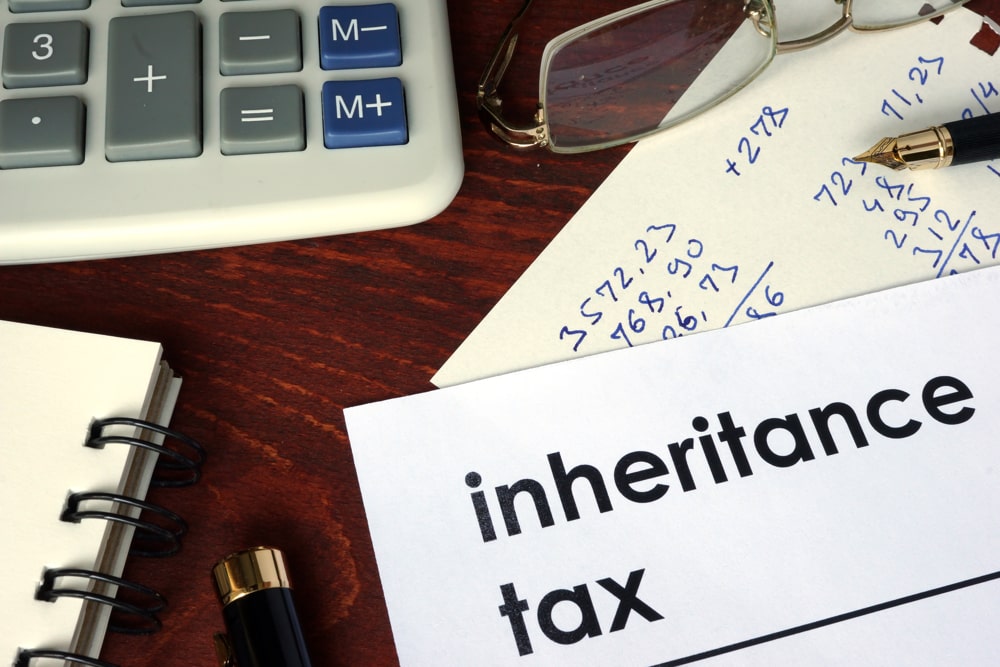Acquaint yourself with the facts about Equity Release and Inheritance Tax so you can make decisions that will benefit the friends and family you want to remember in your Will.
It is famously said that there are only two certainties in life: death and taxes. Inheritance Tax (IHT) brings both of these together.
And, as I’m fond of reminding people, it is never too early to start planning to mitigate IHT – but it can be too late.

Who has to pay IHT?
If you are single and do not own the property you live in, you can leave net assets totalling £325,000. Anything above this will be taxed at the IHT flat rate of 40%.
If you own the home in which you live, and are leaving it to direct descendants (for example your children, step-children or grandchildren), the ‘residential nil rate band’ will give you an additional allowance of £175,000 before IHT is applied to your estate. This means a single home owner can leave £500,000 in net assets before their inheritors pay IHT.
Joint assets
If you are a couple jointly owning your property, you will each qualify for the £500,000 allowance – therefore, between you, you can leave £1million before IHT becomes payable.
And if you have been widowed since these new bands came into effect (in 2020), your late spouse’s allowances are rolled into yours, so you can still leave £1million.
How can Equity Release help?
Rising property values mean that many people now have estates above the £500,000 or £1million thresholds – and this is where Equity Release can be of help to your descendants to save money on IHT.
For example, if your property is worth £1million, but you also have savings and other assets worth £200,000, there will be £80,000 to pay before your estate can be disbursed to the family and friends you have remembered in your Will.
If, however, you have used Equity Release to gift £200,000 to your children, and have planned sufficiently ahead to allow for the expiry of the 7 year transfer rules, your estate will fall within the tax-free cap of £1million.
There are a few other points you also need to consider:
The 7-year rule
If you die within seven years of gifting funds, there will be IHT to pay. However, there is a taper relief on the tax, which means that if you die within 3-7 years of making the gift, the amount of IHT will be reduced.
As the name suggests, taper relief is applied on a sliding scale:
If you die within the first three years of making the gift, the rate of IHT will be 40%. If you die between 3 and 4 years after making the gift, the rate will be 32%. This reduces to 24%, 16%, 8% and then eventually 0% after 7 years.
Time is of the essence
The IHT on your estate will have to be paid by the end of the 6th month after your death. Later than that and HMRC will start charging interest. If there is no tax to pay, your executors can take their time about selling your property, or it can be kept by the beneficiaries of your Will.
Capital Gains Tax
Even if there was no IHT to pay, Capital Gains Tax (CGT) could become payable if your property (or other assets) rise in value after your death. For example, if the house is worth £1million when you die, but £1,100, 000 when your beneficiaries sell it, there could be CGT to pay on £100,000. The rate of CGT is determined by the beneficiary’s income tax rate and other factors.
My advice…
There are of course many other factors to take into consideration, such as business assets, some collectables, and of course gifts to charity.
With this in mind, it really is never too soon to start planning ahead. Do get in touch if you would like to know more about how Equity Release could help to reduce the amount of tax that your children will have to pay on your estate after you die.












